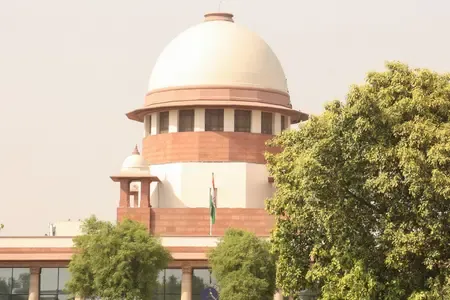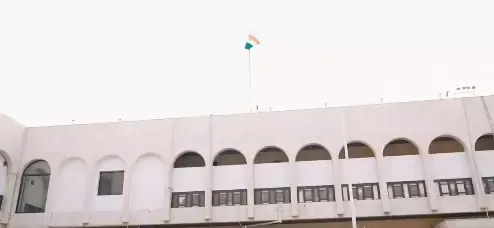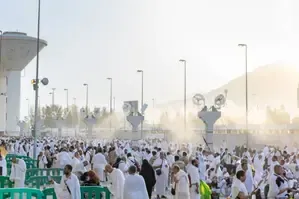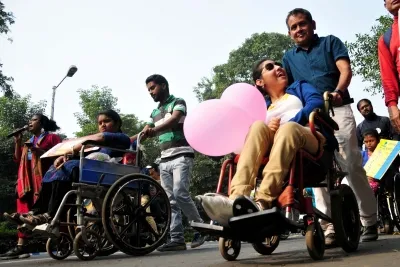Will the Supreme Court Address Air Pollution Concerns Today?

Synopsis
Key Takeaways
- The Supreme Court is hearing a PIL on air pollution in Delhi.
- Stubble burning and stagnant weather contribute to severe air quality.
- The CJI has expressed concerns about current pollution levels.
- Strict actions against stubble burning may be implemented.
- Virtual hearings are encouraged due to health concerns.
New Delhi, Nov 17 (NationPress) The Supreme Court is poised to continue its hearing on a public interest litigation (PIL) concerning the alarming levels of air pollution in the national capital and surrounding regions today.
This hearing is particularly critical as stubble burning and stagnant weather patterns persist, contributing to the air quality in Delhi-NCR reaching the "severe" category.
According to the cause list available on the Supreme Court's website, a Bench comprising Chief Justice of India (CJI) B.R. Gavai, along with Justices K. Vinod Chandran and N.V. Anjaria, will deliberate on the matter today.
During the previous hearing on November 12, the CJI Gavai-led Bench expressed alarm over the worsening air quality despite the implementation of the Graded Response Action Plan (GRAP) and directed the governments of Punjab and Haryana to submit detailed affidavits regarding their actions to mitigate stubble burning.
The Supreme Court noted submissions indicating that the Air Quality Index (AQI) has surged past 450 in various locations across Delhi-NCR.
Senior advocate Gopal Sankaranarayanan highlighted that even routine construction activities, such as drilling work outside the Supreme Court's premises, are persisting despite hazardous air quality. He urged, "At least for a few days, such activities should cease," addressing the Apex Court.
Senior advocate Aparajita Singh, serving as amicus curiae, raised concerns about inconsistencies in official pollution data and emphasized that the situation has escalated to being "very dangerous."
The CJI Gavai-led Bench, which has been closely monitoring this issue, previously sought a report from the Commission for Air Quality Management (CAQM) regarding its monitoring and enforcement measures and suggested that the Centre contemplate imposing strict penalties, including arrests, to deter farmers from burning crop residue.
Recently, Justice P. S. Narasimha of the Apex Court advised advocates to refrain from physical appearances during proceedings and to utilize virtual hearings instead, warning that Delhi's toxic air could result in "permanent damage."
"The situation is extremely serious! Why are you all here in person?" Justice Narasimha remarked. "We have the virtual hearing option. Please use it. This pollution will cause lasting harm," he added.









